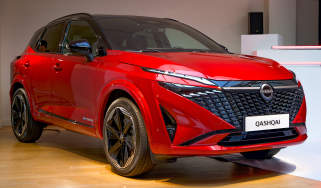Technology for your small business
Avoid costly mistakes by identifying which pieces of kit your small business needs

No matter what kind of business you run, you'll need to make use of information technology - you simply can’t get away with a typewriter, a shelf full of lever-arch files and a drawer stuffed with receipts in the 21st century.
Although to some extent the idea of relying too heavily on computing technology can be daunting, there’s no doubt that using the right hardware and software for your business will help you become more organised, more productive and more profitable.
Here, we guide you through some of the basics that you’re likely to need, and how to go about getting them.
Which IT equipment should I get?
• Work out what you need to doWhat will you require technology for? Common areas needing improvement in small businesses are database management, communication (with customers, suppliers and internally), accounting and book-keeping, and your order-taking and tracking systems.
When trying to work out what needs improvement, it's useful to get some outside help, even if it’s just from friends and family (provided that they aren’t involved with the business). It’s often hard to recognise outdated equipment and methods of working if you're used to dealing with their quirks.
• Choose your new technology carefullyOnce you've identified the areas of your work that you need to focus on, you should carefully consider what you'll invest in - you don't want to pile potentially thousands of pounds into a particular piece of kit (whether hardware or software) only to find that it's about to be replaced, or isn’t right for your business.
Research, then, is key. Talk to others who work in your industry, search the Internet for forums specific to your trade, and ask around - find out if there is a particular piece of kit that has become outdated, or which could be unreliable.
Also, remember that technology moves very quickly, so you have to be careful not to over-commit to software packages or equipment. Leasing IT equipment or software can help here, because it means that you won’t be lumbered with redundant hardware and software that you’ll need to sell or recycle. It can be expensive, though, so think carefully before going down this route, and only take it if your business is particularly reliant on hi-tech equipment.
• Technology you need, versus that which you wantOne of the dangers of modern technology is that it’s easy to be seduced, either because something is fashionable, or because it promises to streamline your business. It's vital to make sure that any new device or software package will genuinely help you. Don’t pick the latest gadget simply because it’s cool - get whatever is best for your business.
The most effective way to do this is to work out exactly how a new device, product or piece of software will fit into your work processes - as well as if and how it will make them better - before you go ahead and buy it.
• Have a back-upAnyone who has spent time with a personal computer will know that technology occasionally fails. So you need to make sure that you have a back-up plan in place which will allow you to keep the business running.
It might mean keeping an old printer in the corner of the office in case the new one breaks, or making sure you have an alternative e-mail address (a free service, the likes of Gmail or Hotmail, makes a good secondary option) in case your primary e-mail system ever goes down.
Other aspects to think about are back-up power supplies and an alternative data-storage system (for example, via cloud software).
Getting a website and e-mail address
Whatever your business, you'll need to get in touch with customers, and they'll need to contact you. For that, you’ll almost certainly require a website and an e-mail account.
• Getting a websiteThe type of website that you'll need depends on how crucial online sales are for you. If you're a retail business selling a lot of units, then you’ll require a professionally run website; you can either employ people in-house to work on it, or subcontract the work out.
The chances are that you won’t need a bells-and-whistles website when you start out, so you won’t have to spend heaps of cash on expensive designers. In fact, you may not need to spend any money at all - or, at least, not very much - to create quite a sophisticated website that will suit your business needs perfectly.
Companies such as MoonFruit, 1&1 My Website and Go Daddy offer free (or very cheap) DIY website services that will most likely provide everything you need. Don't worry if you've never designed a website before - their simple-to-use software makes the process easy.
• Domain namesYou'll almost certainly have to pay for a domain name - the website’s address or addresses. The rights to these are often included as part of packages from web-hosting companies, but there are many other online companies that can register domain names for you for a relatively small fee.
• E-mailAgain, many web-hosting companies will provide e-mail accounts as part of their packages (john@johnsplumbingservices.co.uk, for example). These sound appealingly professional, but for a small business – especially one that works on word of mouth – you should be able to get away with a free account, such as Gmail or Hotmail, until you're ready to upgrade.
Computers
• Laptops vs desktopsYou have two choices when deciding what sort of computer you’ll need for your business: laptops or desktops. The difference between the two largely comes down to price.
Laptops are more expensive, and are often a little less powerful, but are a lot more flexible - you can take them home with you, store them away securely, or use them while out on a job. If you only need one or two machines, then a laptop is probably the best option for you.
However, if your admin work is mostly office-based, or you have several employees, the lower cost of a desktop machine could be a deciding factor for you.
• Mobile devices (tablets and smartphones)Tablets and smartphones are increasingly important business tools when you're out and about, so think about both for yourself or any employees. Tablets in particular might seem expensive, but their versatility can make them valuable assets - especially because they could mean that you won't need to invest in a pricey laptop.
• Networks and serversNetwork operating systems and servers for small businesses are relatively inexpensive to buy and maintain, but unless you're running several computers or storing lots of data, you probably won't need one.
• Software packagesSmall start-up businesses should keep it as simple as possible when it comes to software; unless your business requires specific kit, a versatile package such as Microsoft Office should prove sufficient.


